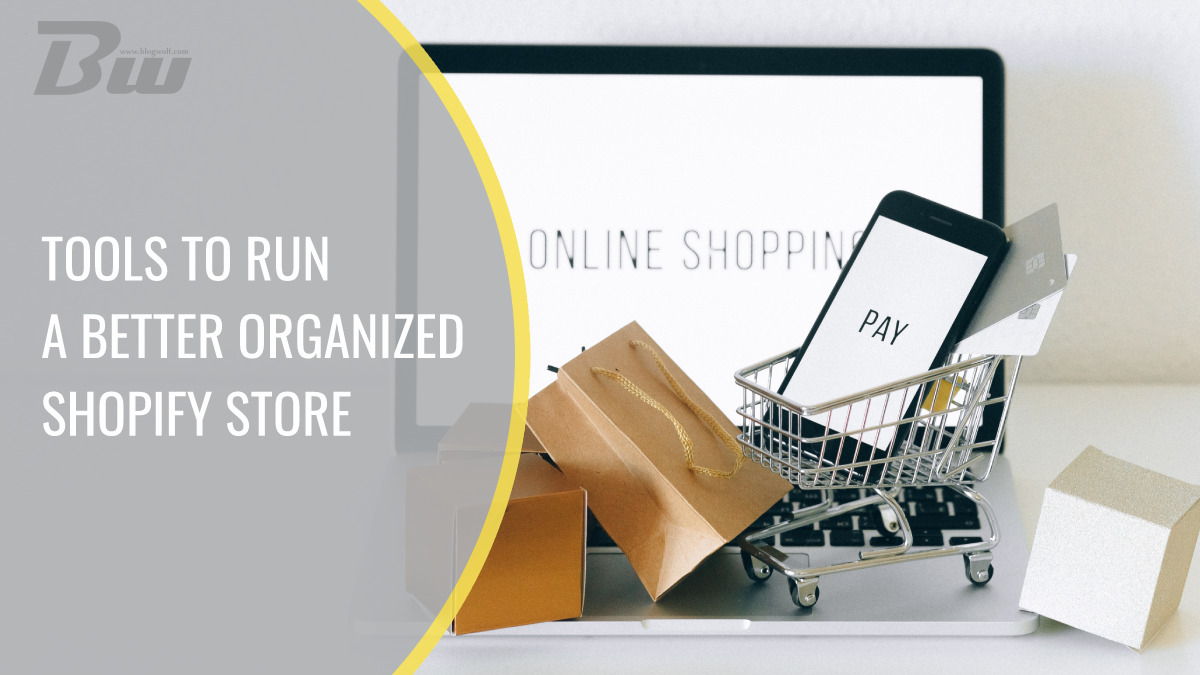Running a successful retail store isn’t without challenges. You’re put into competition with more than two million similar businesses, which means that you need to use some of the best eCommerce tools in order to unleash your maximum potential.
From managing your inventory and providing outstanding customer support to taking care of accounting and providing detailed analytics, these tools can automate and simplify various aspects of your Shopify store, helping you use your time more effectively and boost your productivity. The same applies to any well-crafted Shopify order confirmation email template.
1. Shopify ERP

How much time do you spend every day doing necessary but boring and repetitive tasks that don’t add value, like entering data manually or retrieving data siloed from complementary data?
Shopify ERP is designed to gather, organize, and interpret data from various business activities, including inventory, customer relations, human resources, sales, manufacturing, etc. Without ERP software, the data is without any connection or context. Only when you are able to organize your data and turn it into insight can it help you become better organized and make better business decisions.
2. Contract Management

Contract management software is a service or program used by legal, financial, sales, procurement, and contract administration teams to track existing contracts’ status and create new ones. It includes tools for storing and managing legal agreements from customers, employees, vendors, and partners, providing a single centralized record.
Note: Individuals and businesses that provide services often need a signed contract for a project, and nowadays, electronic signatures are becoming more common. Click here to learn how to sign a PDF document and learn more about the technical part of signing an electronic document.
3. Customer Service

Customer service is a vital part of any eCommerce business. The way in which your business deals with customers will determine whether they will recommend it to others. However, with a lot of queries coming in the form of pricing requests, product feature requests, etc., your customer support team might fail to respond to every customer email.
Having a live chat tool will make it easier for you to keep a clear, 24/7 line of communication with your customers. Whether they need assistance in finding the right product or require technical support, live chat allows them to get answers quickly without picking up the phone or waiting for an email response.
4. Customer Relationship Management

CRM (customer relationship management) is software that helps you store data about your existing customers as well as information on prospects in a single location. In this way, CRM provides an overview of your operations and helps you determine potential sales opportunities.
Some of the most important benefits of CRM for eCommerce include:
- Helping business owners and marketers find and attract new customers.
- Providing relevant information on the existing customers and helping you design loyalty programs
- Helping you understand your customers and their behaviors better
- Lowering customer management costs
5. Accounting Software

Without dedicated accounting software, bookkeeping can be quite daunting. If you are selling nationwide, tracking taxes by the state might consume a great portion of your time. Not to mention, accounting mistakes can cost a great deal, which means that you need to be extra careful.
Here are some of the benefits of using this kind of software.
Increased accuracy. Regardless of how good you are at keeping up with the books manually, humans are prone to error. Accounting systems are far more accurate in individual transactions but also in screening for mistakes.
Clear financial reporting. Having all of your finances in front of you in the form of graphs and charts will help you better understand your company’s financial statements at any given time.
Better collaboration between departments. Making your company finances accessible to marketing, sales, inventory, payroll, etc., will make it easier for everybody to collaborate to make better decisions related to business finances.
6. Marketing Tools

There are hundreds of eCommerce marketing tools available on the market, which makes it difficult for retailers to decide which ones are suitable for their business. The good news is you don’t need a tool for everything – all you need to do is ensure that you have the marketing basics covered.
Search engine optimization. By focusing on SEO, you improve the chances of your website showing up near the top of SERPs. By optimizing your site for search, you can boost your organic traffic and attract new customers.
Email marketing. The right email marketing tool will help you build relationships with your site visitors and customers. For instance, you could create an automated email sequence to inform them about upcoming sales or new products.
Social media. Being active on social platforms is one of the most effective ways to promote your business and engage with your customers. However, social media management can be quite time-consuming, so it’s worth automating this task as much as possible.
7. Analytics Software

Analytics software tracks the performance of your retail store, helping you identify your least- and best-performing products, monitor consumer and buyer behavior, and determine issues that impact the business.
eCommerce analytics software can also help retailers analyze and identify patterns and trends that affect buying habits, providing them with stats and insights on customer demographics and keywords. You will find out what’s working and what’s not and be able to come up with effective strategies to improve revenues.
Retailers use analytics tools to improve both customer experience and sales, but they can also be used by accountants to track profitability and costs, as well as by inventory managers for fulfillment.
Final Thoughts
The fierce competition in the online retail sector has forced business owners to look beyond traditional methods of running their shops. By designing an attractive store and managing it efficiently, you’ll be able to capture your visitors’ attention and convert them into paying customers.
These 7 eCommerce tools will help you execute all of your business operations easily and without any technical knowledge.

